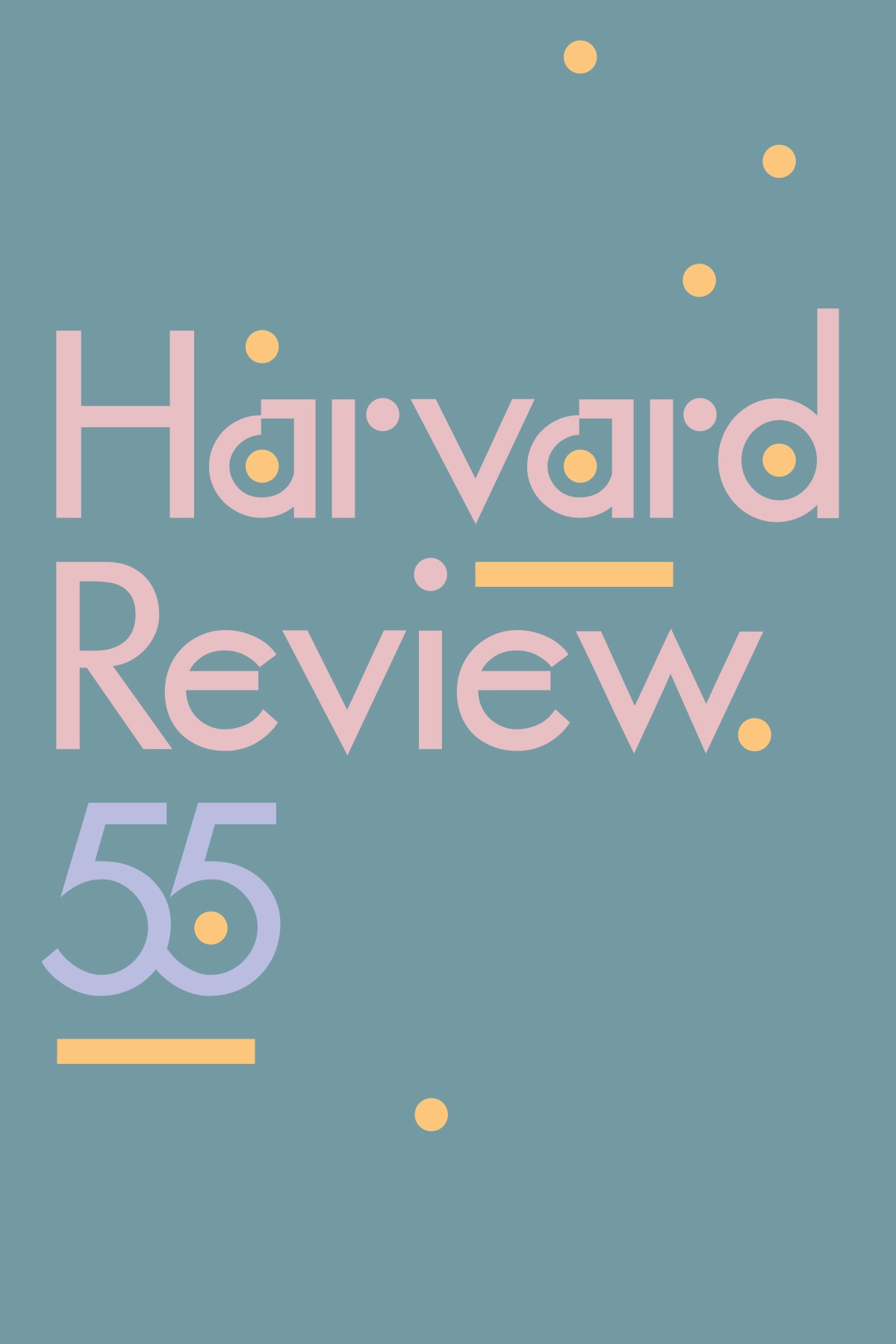HR 55 Editorial
by Christina Thompson
The other day the new head of the Harvard University Library paid us a getting-to-know-you visit. We were pleased to have an opportunity to explain what we do here, and in the course of things the conversation turned to who we are. This gave me an opportunity to sing the praises of the amazingly accomplished group of people who make up the staff of Harvard Review.
Harvard is, of course, well known for its phenomenally accomplished faculty and students, but not everyone realizes how interesting the staff are. When I first came to Houghton Library (publisher of Harvard Review), I was amazed by the depth of knowledge—often on the most esoteric subjects—routinely possessed by people who worked in cataloging or manned the desk in the reading room. I still vividly remember a presentation made at a staff meeting, by a library assistant who wowed us with his knowledge of the Cherokee syllabary.
Harvard Review is a similar hotbed of accomplishment. In our tiny office we have a poet who translates from both Spanish and classical Chinese; a Victorianist who writes literary journalism; a graphic designer who translates Chilean poetry; and the editor of a bilingual critical edition of a famous Mexican author. We admire learning—and so, it would seem, do our contributors, many of whom draw on deep wells of knowledge and expertise.
One of our very youngest contributors, Natalie Hodges, writes in an essay called “Untrainment” about the experience of being a concert violinist. The poet Dan Beachy-Quick, recently long-listed for the National Book Award, offers translations from the Ancient Greek. The Pulitzer Prize–winning biographer Megan Marshall takes us into the archives with an essay on the aftermath of the First World War. And the poet Stanley Plumly, who passed away this past April, brings us close to Wallace Stevens, writing about a reading Stevens gave at Harvard just a few years before his own death. (This reading, which took place on on May 1, 1952, and was introduced by Richard Wilbur, can be listened to at Harvard’s Woodberry Poetry Room.)
These and the rest of the pieces in this issue have reached us by a variety of sometimes circuitous routes. Some, like Ben Hinshaw’s fine story “Antediluvian” or Nicholas Cannariato’s interview with Elaine Scarry commemorating the twentieth anniversary of On Beauty and Being Just, simply arrived in the mail. Others are the result of casual conversations at book fairs or other events. But at least two of the pieces in this issue have been in the pipeline for years.
David Rompf’s “Once More to the Pond,” about reading Thoreau’s Walden in a series of settings, is a version of an essay that I first read probably ten years ago. Although I declined to publish it at the time, I never forgot it (a clear sign to me that I’d made an editorial error). Last spring I wrote to David and asked if it had ever been published and, if not, whether he would consider dusting it off. The other is a story by Tiphanie Yanique—another writer whose work I somehow failed to publish when it first crossed my desk and who has consequently been in my mind for several years. When I wrote to her recently, in an attempt to remedy this situation, she generously sent me not one but two stories, both so wonderful it was terrible to have to choose. One of those stories has since appeared in The New Yorker; the other, I am proud to say, appears here.
Although we take pride in the stylistic diversity of the pieces that appear in Harvard Review, we have perhaps never had quite such a range as we do in this issue. At one end, Hinshaw’s Graham Green-esque tale of trouble in paradise and Yanique’s richly textured parable of young love. At the other, Ander Monson’s close-third-person study in empathy and alienation and a Knausgardian exercise in autofiction by William Pierce. But then, triangulating these, we have “Hannah and the Mockup Man,” a work of speculative fiction by Robert Long Foreman, which, I think I can fairly say, is unlike anything I have published before.
The poetry in this issue is similarly rich and varied, with the wonderful work of V. Penelope Pelizzon, Mira Rosenthal, Daniel Borzutzky, and Christopher Spaide all bouncing and pinging off one another. We are delighted to present all this and more in an issue full of talent, wisdom, energy, and surprises. Happy New Year to all!
Published on March 2, 2020
First published in Harvard Review 55

